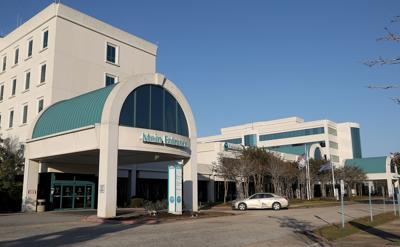Whenever the feds decide they know what's best for the locals, a prompt meeting of the minds is by no means guaranteed. More likely, feathers will be ruffled, injunctions issued and proceedings put on hold.
So it is with the Federal Trade Commission's decision to pause LCMC's plans for the three New Orleans metro-area hospitals it added to its portfolio in January.
If the deal is indeed finalized, the result will be a public-health duopoly; if you don't want to get treated under the auspices of LCMC, your only option will be an Ochsner institution. It thus came as no surprise when the antitrust hawks at the FTC asked the courts to intervene after LCMC announced it was about to shutter the Tulane Medical Center in New Orleans, shunting hundreds of practitioners and medical students out to the 'burbs of East Jefferson. Tulane Lakeview Hospital in Metairie and Lakeview Medical Center in Covington were also part of the deal, which, according to the FTC, may not pass muster.
Whether fewer hospital systems would be good or bad for the quality of local health might strike you as the urgent consideration here, but now that LCMC and the feds are locked in litigation, there will be no rush to judgment.
The first question to be resolved is not whether the three hospitals remain open, but who should be entrusted with resolving that question.
LCMC maintains it is none of the feds' business, waving what is known as a “certificate of public advantage,” whereby a state can supposedly keep the antitrust dogs at bay by promising enhanced vigilance on its own initiative. Louisiana Attorney General Jeff Landry is strongly in favor of seeing the deal go through, and denounces the FTC's “overreach” and assault on state sovereignty.
There is even more reason than usual to ignore Landry's fulminations, however. He is running for governor, and must figure bigging up the state will help his campaign. He is also the state official who issued the certificate of public advantage.
The FTC takes a dim view of such certificates, observing: “(They) purport to immunize mergers and antitrust mergers and collaborations under the state action doctrine.” The result, according to the FTC, can be “higher prices for patients without improvements in quality of care, reduced patient access to health care services, and lower wages for hospital employees, who face fewer employment options.”
The attorney general has a diametrically different take. According to Landry, “the merger will enhance competition, lead to greater access to health care, result in higher quality health care and likely not result in undue increases in cost.” Even Mr. Booster seems to concede that costs will go up.
Meanwhile, the FTC has demonstrated its contempt for state certificates of approval. For its failure to seek permission for the hospital closures, the FTC is fining LCMC $46,517 a day, dating back to Jan 1. You can treat a lot of sick people for that kind of money.
LCMC is a nonprofit, which does not, of course, signify any constraint on its right to make a profit. It is merely required to use surplus revenue to advance its business.
By the time this is all over, LCMC may be out more millions than it can afford to pay. If this dispute winds up depriving health care of money it needs, the public should be howling for blood.
Email James Gill at gill504nola@gmail.com.

